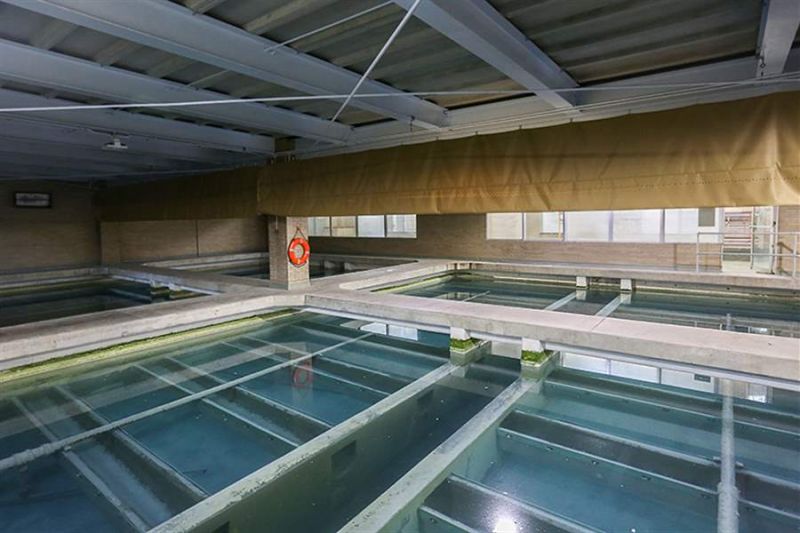Researcher at UT Gets Grant to Study Algal Toxin Filtration
Published on by Water Network Research, Official research team of The Water Network in Academic
A University of Toledo researcher has received a $224,937 grant to help make filters at water-treatment plants operate more efficiently at removing algal toxins by better understanding how bacteria works.
 Youngwoo Seo, UT associate professor of civil engineering and chemical & environmental engineering, told The Blade that while his three-year project funded through the National Science Foundation will have a strong focus on Toledo’s water plant, it will also incorporate research from plants in Monroe, Bowling Green, and Oregon.
Youngwoo Seo, UT associate professor of civil engineering and chemical & environmental engineering, told The Blade that while his three-year project funded through the National Science Foundation will have a strong focus on Toledo’s water plant, it will also incorporate research from plants in Monroe, Bowling Green, and Oregon.
The four provide most of the municipal drinking water in the western Lake Erie watershed.
On a parallel path, Mr. Seo said he will attempt to learn more from laboratory research how bacteria forms filmy substances known as biofilm that helps remove organic matter as partially treated water is pushed through filters.
A University of Toledo researcher has received a $224,937 grant to help make filters at conventional water-treatment plants, including Toledo’s Collins Park Water Treatment Plant, operate more efficiently at removing algal toxins by better understanding how bacteria works.
Youngwoo Seo, UT associate professor of civil engineering and chemical & environmental engineering, told The Blade that while his three-year project funded through the National Science Foundation will have a strong focus on Toledo’s water plant, it will also incorporate research from plants in Monroe, Bowling Green, and Oregon. The four provide most of the municipal drinking water in the western Lake Erie watershed.
On a parallel path, Mr. Seo said he will attempt to learn more from laboratory research how bacteria forms filmy substances known as biofilm that helps remove organic matter as partially treated water is pushed through filters.
Several European plants are much farther along in that technology than the United States, according to Mr. Seo, who said any plans to inject bacteria into area water plants are in the future and subject to years of review.
But through his microbiological research, he hopes to gain a better understanding how that technology works, he said.
“My study is on understanding bacteria,” Mr. Seo said. “There is always biofilm growing in the filter media.”
The grant is soon to be announced by the office of U.S. Rep. Marcy Kaptur (D., Toledo).
Miss Kaptur told The Blade she is excited about the award because the project could help raise western Lake Erie’s profile nationally while also generating research that could also serve as more help in the region’s war against algae.
With Earth’s temperature warming and more regions battling algae, such homegrown research could be embraced in other parts of North America and the world in the future, she said.
“I’ve been encouraging people to look at water treatment as a growth industry for us,” Miss Kaptur said. “We can create new applications for our plant and others.”
Mr. Seo said his work at the Collins Park Water Treatment Plant will be done in tandem with the installation of that facility’s new ozone technology, the cornerstone of the modernization project that is costing more than $300 million.
Read full article at: Toledo Blade
Media
Taxonomy
- Algae
- Drinking Water
- Algae Treatment
- water treatment
- Water & Wastewater Treatment
- Grants